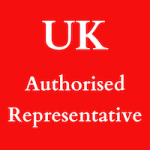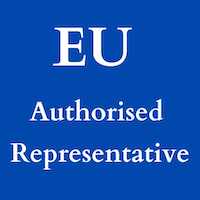TPD Testing: What is it?
What is TPD Testing?
Under the rules of the Tobacco Products Directive, eliquids and e-cigarettes are required to undergo emissions testing – also known as TPD testing – before they can be placed on the market.
TPD testing involves generating emissions from the e-cigarette or e-liquid and analysing for specific chemicals and metals at a specialist analytical laboratory under controlled conditions. It is a process that requires bespoke equipment and specially trained lab technicians.
The results of the test are submitted in a notification for assessment by the health authorities such as the MHRA.
Staff training on TPD notification and emissions testing at your site. Click here to learn more.
Legal basis for TPD testing
Article 2 b) of the Tobacco Product Directive reads as follows:
“A new notification shall be submitted for each substantial modification of the product. The notification shall, depending on whether the product is an electronic cigarette or a refill container, contain the following information:
(b) a list of all ingredients contained in, and emissions resulting from the use of, the product, by brand name and type, including quantities thereof;”

TPD requires manufacturers to test the emissions of e-cigarettes.
Which TPD testing service should you use?
There are now a number of different types of companies in the UK and internationally offering an e-cigarette testing service. How do you know which one to choose?
There are a number of questions you should ask yourself when making your choice. They include:
- Is the company independent of the e-cig industry? Does it have any competing interests?
- What is their expertise and experience in TPD testing?
- Are they supported by a regulatory consultant or TPD expert?
- How much do they charge? Does the test meet the minimum requirements?
- Are they testing beyond what is required?
We make sure any testing laboratory we use is truly independent and has no competing interests or associations with other e-cigarette companies. Medic Pro is also independent and has no competing interests – read more here.
E-cigarette testing is a specialist area and not all laboratories have the expertise (or equipment) to be able to offer the service. It is essential that the test is conducted by specialist technical staff that have the training, skills and experience in e-cigarette testing. The results should be expertly and accurately written up in a report as they may undergo scrutiny by the authorities at a later date.
The laboratories that conduct e-cigarette testing for our clients receive our full support for all regulatory matters. We address any questions the laboratory might have about the product being tested or agency questions on the design of the test. Note: all devices should not be tested the same way. The design of the test may differ between e-liquids and types of devices; a cig-a-like is tested under different conditions to RDAs, for example.
It is important to consider the e-cigarette testing fee at the laboratory (prices can range from £70 – £900 per e-liquid) and what emissions they test for. If the price is too low the test may not meet the minimum requirements; if the fee is too high they may be needlessly testing above and beyond the requirements.
We understand the minimum requirements and the likely cost of such a test. Any test we arrange with a laboratory is, at the very least, to the minimum requirements and at a sensible price.
We understand that many labs are offering TPD testing which goes beyond the TPD requirements. We ensure our clients test only in accordance with the requirements – we do not sell testing services unless it is required. Please contact us if you are not sure of the testing requirements.
How can we help?
TPD testing is one of the many services we offer to our clients. We have helped a variety of e-cigarette companies, from large manufacturers to small retailers/importers get products TPD tested for notification purposes (read a testimonial or case study).
We offer a personalised service which aims to ease the burden and cost of e-cigarette testing while ensuring the regulatory requirements are met.
Get regulatory updates and commentary by subscribing to our newsletter.
Express TPD Testing
Fast & low cost TPD testing
Complies with minimum TPD requirements and is accepted by EU Agencies (e.g., MHRA). We use an independent and accredited lab located in the UK with a turnaround in 10 days. Get a Quote
ISO Quality TPD Testing
TPD testing to the highest quality Standards complies with ISO 20768 and is accepted by EU Agencies (e.g., MHRA). We use an independent and accredited lab located in the UK with a turnaround in 15 days. Get a Quote
About ISO 20768
ISO 20768 is the latest Standard to be published for vape products. According to the ISO website, the Standard defines and specifies:
“the requirements of machines used in laboratories to draw air through the devices in order to generate aerosol for subsequent analytical testing in a robust and reproducible manner.”
More specifically, the Standard:
- Defines the parameters and specifies the standard conditions for a vaping machine for vapour products
- Specifies technical requirements for the machine for routine analytical vaping, conforming with the standard conditions stated within Clause 4;
- Does not specify the vapour product, the vapour product operation or the liquid to be used
- Does not specify the means for aerosol trapping, subsequent sample preparation or analyses of components in the trapped aerosol
Is TPD testing required to conform with ISO 20768?
Currently, vape products do not require testing according to any ISO Standards such as ISO 20768. But this will change. The TPD requires that when Standards become available vape products should comply with them. Agencies have not enforced this requirement but they will in the future.
About FREE Regulatory Phone Support
Clients that use our services get complimentary regulatory phone support. We can answer your questions on various TPD-related topics such as TPD packaging, CLP and the impact of Brexit.
- Provide advice on the developing e-cigarette regulations in the EU and regulatory pathways available for nicotine-containing products and devices (e.g., medicinal route).
- Provide practical advice on how to comply with regulations for vape products including packaging advice.
- Respond on client’s behalf to letters from authorities such as Trading Standards and MHRA.
- Advise on the potential impact of Brexit (March 2019) on TPD regulation.
About the TPD labs we use
When we arrange testing on behalf of our clients, we only use selected labs that meet specific criteria, which include:
- Accreditation
- Well established and experienced in analytical testing
- Independent of the e-cigarette industry (to mitigate competing interests)
- Specially trained staff
- Quality test report write-up
The TPD test report
The TPD test report from the lab will include the emissions (name and quantity) and the test method used for submission in the notification. Some examples of the reported emissions include the aldehydes: acrolein, acetaldehyde, formaldehyde and metals: aluminium, chromium, cadmium, tin, and mercury. In addition, an indication of the nicotine dose consistency of the product is reported.
Test Methods
The method of the test that was used must also be submitted in the notification (the write-up of the method should contain enough information for the authorities to be able to replicate the test).
Our labs typically use the following equipment in the analysis:
- High performance liquid chromatography – to detect aldehydes
- Inductively coupled plasma / mass spectrometry – to quantify metals
- Gas chromatography with mass spectrometry – for nicotine analysis
Expert Opinion
We have a thorough knowledge of the TPD testing requirements and extensive e-cigarette testing experience. Should you require expert opinion on a service provider’s TPD testing please contact us.
Minimising testing costs
An important part of our service is to keep testing costs down. We do not sell e-cigarette testing services unless it is necessary. We also work closely with our clients to minimise the impact on business of new and emerging regulations, which in turn, helps our clients to save money.
Contact us
Complete the form below to request TPD testing or to speak to a TPD expert.
About Medic Pro
What We Do
We are a London-based regulatory affairs consultancy providing services to the e-cigarette, cosmetic, biocide, pharmaceutical and medical device industry. We help e-cigarette companies comply with the Tobacco Products Directive and pharmaceutical companies obtain and maintain medical product licences. We also offer UKAS accredited biocide and analytical testing services.


